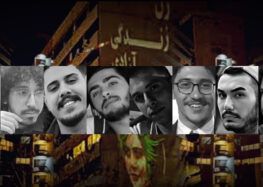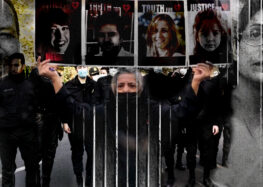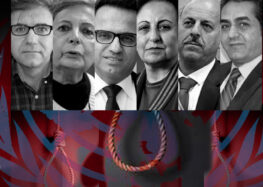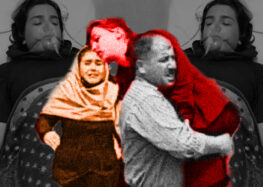Iranian Human Rights Lawyer Facing Prison For Criticizing Judiciary
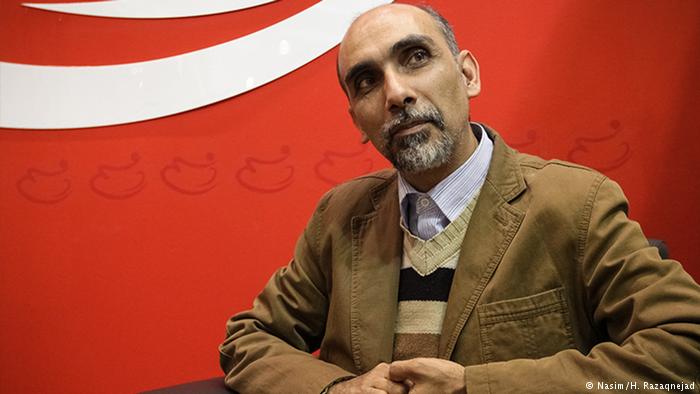
Iranian attorney Mostafa Tork Hamadani has been charged for criticizing the judiciary for barring him and other defense lawyers from defending environmentalists who were arrested by the Islamic Revolutionary Guard Corps (IRGC).
Hamadani, who has taken on several human rights cases throughout his career, tweeted a copy of his summons document on July 26, 2018, adding:
“I was summoned to the Culture and Media Court based on a complaint by Tehran’s deputy prosecutor who accused me of spreading falsehoods. The reasons given in the complaint are my tweets about the late Seyed-Emami and the Note to Article 48 regarding the prohibition on lawyers against representing detained environmentalists. The investigator was polite and I hope my defense will be accepted. All my efforts are aimed at improving the climate for lawyers to defend the accused.”
Iranian Canadian academic and environmentalist Kavous Seyed-Emami died under suspicious circumstances in Iran’s Evin Prison in February 2018 after being arrested by the IRGC the previous month.
Several of his colleagues at the Persian Heritage Wildlife Foundation, where Seyed-Emami worked as managing director, remain detained since being arrested in January.
Dozens of environmentalists have been arrested around Iran since January 2018 by the IRGC. According to the opposition news site Kalame, the environmentalists were targeted by the IRGC for opposing the installation of missile sites on protected lands.
The detainees were denied access to counsel for months and ultimately not allowed to choose their own lawyer. Some of their relatives have reported serious injuries.
In January 2018, the judiciary released a list of 20 state-approved lawyers allowed to represent detainees facing politically motivated charges, citing the Note to Article 48 of Iran’s Criminal Procedures Regulations.
The article allows the judiciary to heavily restrict the right to counsel in cases involving alleged “crimes against internal or external security.”
Hamadani was one among a group of human rights lawyers in Iran who have condemned the list, arguing it violates Article 35 of Iran’s Constitution, which states, “Both parties to a lawsuit have the right in all courts of law to select an attorney, and if they are unable to do so, arrangements must be made to provide them with legal counsel.”
On March 11, 2018, Hamadani complained that the judiciary had rejected repeated requests from detained environmentalists to allow him to represent them.
“Every suspect, even the worst, has a definite right to have a lawyer by her/his side as soon as they are taken into custody,” he said in an interview with the Jamaran news site.
On April 17, Hamadani said he had tried for more than two months to gain access to an environmentalist held in solitary confinement for 70 days (at the time) in the IRGC-controlled Ward 2-A of Iran’s Evin Prison.
“I have no choice but to declare defeat in representing the environmentalist suspects,” he tweeted. “It has been two months since I complied with the deputy prosecutor’s order to present my requests to Ward 2-A and there has been no response.”
“What’s going to be the outcome of investigating a suspect for 70 days in solitary confinement without a lawyer other than a fallacious indictment and wasted time and funds?” he asked.
Iran has a documented history of harassing and jailing lawyers who have taken on politically sensitive cass.
Several lawyers have been blocked from taking on human rights cases since January 2018 while other lawyers have been detained and also denied the right to counsel of their choice.
Prominent Iranian attorney Nasrin Sotoudeh had also criticized the judiciary’s restriction of the right to counsel before she was detained in June 2018. She is facing years in prison under national security charges.
In July 2018, the International Bar Association’s Human Rights Institute (IBAHRI) called on Iran’s supreme leader to release Sotoudeh and to “ensure that lawyers are allowed to carry out their legitimate professional activities without fear of intimidation, harassment or interference, in accordance with international human rights standards.”
“The IBAHRI expresses serious concern over the unwarranted interference with the professional duties of lawyers, as it is an unacceptable intrusion on the independence of the legal profession which undermines the rule of law and threatens democratic principles,” said the IBAHRI’s letter to Ayatollah Ali Khamenei.
Article 9 of the International Covenant on Civil and Political Rights (ICCPR), to which Iran is a party, protects the right to freedom from arbitrary arrest and detention.
Article 14 guarantees fair trial rights, including that the person charged with a crime has the ability to communicate with legal assistance of their own choosing.



